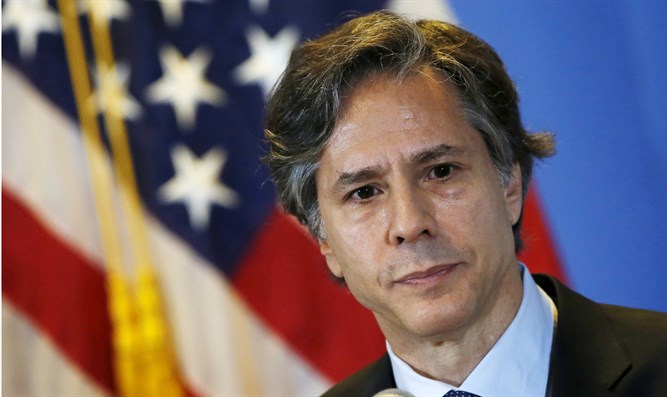
Antony Blinken says in confirmation hearing the Biden administration will not reverse Trump’s decision to relocate US embassy to Jerusalem.
Antony Blinken, US President-elect Joe Biden’s nominee for Secretary of State, said at a confirmation hearing on Tuesday that the Biden administration would not move the US embassy from Jerusalem.
Blinken, who spoke to the Senate Foreign Relations Committee, was asked by Senator
Ted Cruz (R-TX) if he believes that Jerusalem is the capital of Israel, and if the Biden administration will keep the US Embassy there.
Blinken replied “yes” to both questions.
Trump moved the embassy from Tel Aviv to Jerusalem in May of 2018, fulfilling his campaign promise to do so. The move angered the Palestinian Authority, which last year submitted a request to the International Criminal Court (ICC) for legal action against the US over the embassy relocation.
Biden himself said during the election campaign he would keep the US embassy in Israel in Jerusalem, despite the fact that he objects to the conditions under which President Trump decided to move it.
“The move shouldn’t have happened in the context as it did, it should happen in the context of a larger deal to help us achieve important concessions for peace in the process. But now that is done, I would not move the embassy back to Tel Aviv,” he said at the time.
In Tuesday’s hearing, the Secretary of State-designate also said he would consult with US allies regarding the possibility of re-entering a nuclear deal with Iran.
“If Iran comes back into compliance we would too,” Blinken told the Senate Foreign Relations Committee during a confirmation hearing.
Blinken said his approach would be to use the return to the 2015 nuclear deal as a “platform” for a broader agreement.
“We would use that as a platform with our allies and partners, who would once again be on the same side with us, to seek a longer and stronger agreement,” he said.
He added that the issue of Iran’s ballistic missile program would also be addressed, but noted that “we’re a long way from there” at this time.
US President Donald Trump withdrew from the 2015 Iran deal in May of 2018 and reimposed sanctions on the Islamic Republic.
Iran, in turn, has gradually scaled back its compliance with the 2015 deal. It recently announced it had resumed enrichment of uranium at its underground site in Fordow.
Several days later, it started work on uranium metal-based fuel for a research reactor.
(Arutz 7).